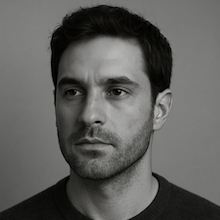The deployment of National Guard troops to major U.S. cities has recently become a topic of intense debate, as federal authorities seek military support for law enforcement and immigration enforcement operations. President Donald Trump authorized deployments in 2025 to urban areas such as Los Angeles and Washington, D.C., citing the need to address protests and rising crime. These measures have faced fierce public scrutiny and sparked discussions about the legality and ethics of utilizing the military in civilian contexts.
Critics, including a number of veterans and advocacy groups, argue that such deployments may violate the Posse Comitatus Act, a federal law restricting the use of military personnel in domestic law enforcement. They contend that recent uses of the National Guard for these purposes overstep constitutional principles and urge service members to consider conscientious objection if they harbor moral or legal reservations about these assignments.
Organizations led by former service members, many of whom have experience in conflict zones, are stepping up efforts to educate current Guardsmen about their rights. These groups provide advice on resisting deployments, including guidance on the process of applying for conscientious objector status. Support efforts include public rallies and billboards aimed at informing troops of their rights and fostering community backing for those who dissent.
However, as experts and legal scholars note, the military’s process for approving conscientious objection is both strict and narrowly defined. According to academic analysis and military policy watchers, status is granted only to those who object to participating in all wars due to deeply held moral or religious beliefs. Soldiers who object solely to specific assignments—such as being ordered to police domestic protests—do not meet the criteria for conscientious objection and remain obligated to follow deployment orders.
Service members who disobey what they believe to be unlawful orders face significant risks, including disciplinary action, court-martial, or imprisonment. The U.S. military requires discipline and compliance to maintain the chain of command, and legal paths for refusal are limited. Despite these risks, a historical tradition exists—dating back to instances like the Vietnam War—of service members refusing orders on moral or legal grounds. Such actions, though rare, have sometimes contributed to broader policy debates or shifts.
In recent months, veteran-led organizations report an uptick in inquiries from troops questioning the legality or morality of domestic assignments. Activist leaders say this reflects increasing unease within the ranks about the role of the military in domestic affairs. The military, meanwhile, emphasizes that any service member seeking to avoid deployment based on conscience must meet high evidentiary standards, showing sincere, comprehensive opposition to all aspects of military service.
For most Guardsmen, the avenue for legally avoiding deployment to U.S. cities remains narrow, with conscientious objection reserved for those with overarching opposition to war itself, not individual orders or missions. As these deployments continue to generate debate, both within and outside the military, the balance between personal conscience, lawful command, and national policy remains under scrutiny from legal experts and the public alike.
For further information, see the original article from Yahoo News and additional analysis at The Conversation.




